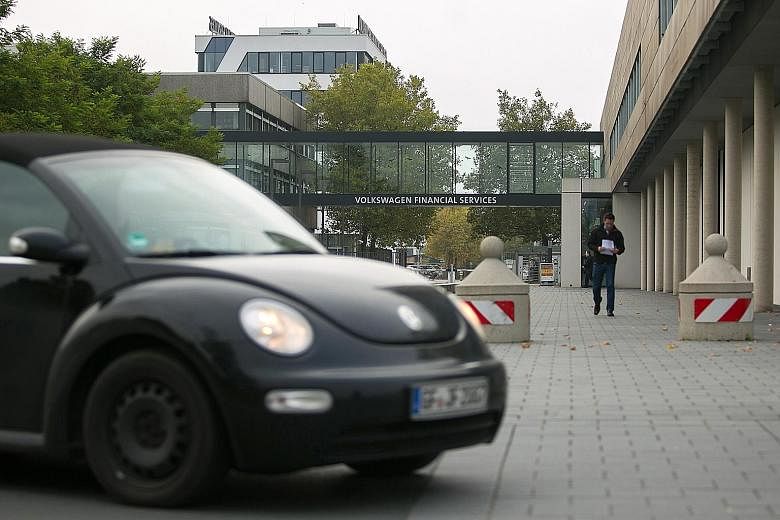In recent years, "doing well by doing good" has become a fashionable mantra for companies.
Some company bosses even make a big deal out of it by discussing social problems and how the strategy they map contributes to the greater good - besides just improving their company's bottom line.
Indeed, some big companies fill up their annual reports with page after page of their efforts to improve and safeguard the environment.
This quest for good behaviour - known as corporate social responsibility (CSR) - has also spawned a big industry. By some estimates, major companies spend about US$20 billion (S$28 billion) a year on CSR - equivalent to almost 40 per cent of the Singapore Government's projected expenditure for the current financial year.
Big bucks are spent by companies to hire people to produce glossy reports to highlight their good behaviour, sponsor projects which help the community they do business in, as well as support a host of charities to showcase their caring side.
Above all, companies also spend big sums on expensive consultants to advise them on how to undertake CSR and how to make their laudable efforts widely known.
Some of them even have a senior executive in their organisations - often hired from the very non-governmental organisations which take issue over some of their business practices - to develop and coordinate the CSR function for them. They are given an office and staff to build this caring and sharing side of the company's business.
Is it money well spent? Some companies believe so. You can't burn through US$20 billion without having something to show for all that money spent.
After all, in a globalised environment, for companies, their reputation is theirs to lose - and this can sometimes be costly if consumers boycott their products and cause their business to suffer. Embarrassing news about them can easily be captured on ubiquitous smartphone cameras and published almost instantaneously on the Internet.
Look at it this way: Money spent building up goodwill among consumers and even helping to limit the damage of unpleasant incidents that do erupt, is one savvy way to manage risks.
But the nagging worry for consumers is that, despite spending enormous sums on CSR, these companies may be merely paying lip service to the ideal of being good corporate citizens without any real intention of changing their behaviour.
One example is the recent Volkswagen scandal.
After being accused by the United States of cheating on pollution controls, German carmaker VW admitted that 11 million of its diesel cars were fitted with so-called "defeat" devices to fool regulators and, more importantly, customers into thinking that their cars were hitting emission targets that they were nowhere close to achieving.
But as London-based Daily Telegraph columnist Matthew Lynn pointed out in a recent article, VW is also a global leader in CSR, packing its annual report with details of the community projects it has backed and the charities it has supported.
"What that surely tells us is that CSR has become a racket - and a dangerous one. It allows companies to parade their virtues and look good, while internal standards are allowed to slip," he wrote.
In short, he believed that the money which companies spend to make a very public display of how virtuous they are may be stopping them from seriously thinking about what their social responsibility should be.
Mr Lynn suggested that it may be better for companies to shut down their CSR departments if only to drop the smoke-screen that they are good corporate citizens - and to focus on grappling with the real issue of cleaning up their behaviour where it actually matters.
His views may be a tad extreme. There are, after all, companies such as US industrial conglomerate General Electric, which takes environmental responsibility so seriously that it has transformed itself into a world leader in clean-energy technologies.
But some of us getting choked daily by the haze may find ourselves agreeing with Mr Lynn.
Most people know that the haze is caused by the burning carried out in Indonesia every year to clear land to grow pulpwood to make paper and to cultivate oil palm to make cooking oil and a host of other products.
Some big companies have been fingered as the culprits as the fires occurred in and around the huge land concessions where they operate their plantations.
But talk to the companies and they all say "Not me", blaming everyone else, including small-time farmers, as the culprits.
To rub salt into the wound, the spin put out by some of the companies' CSR spin doctors on what causes the haze borders on the incredulous.
One British consultant even wrote that some of the fires could have been started by local protection rackets to extract "rents" from smallholders.
It is difficult to believe that the scale of fires started in such a manner would be big enough to create the huge haze that envelops much of South-east Asia.
Rather than spend vast sums hiring expensive experts to try to convince us that they are not responsible for causing the haze, the big plantation companies may find it more useful to use the money to try to prevent it in the first place - and that should include beefing up law enforcement agencies to stop the so-called protection rackets from blackmailing small-time farmers.
As Mr Lynn noted, the social responsibility of a company boils down to building a decent product which does what it says it does, without harming the environment or endangering a person, charging a fair price for it, and paying its staff and suppliers on time.
Just perform all these tasks well - and a company would have earned enormous goodwill from all its stakeholders - investors, consumers and society at large. It's as simple as that.


